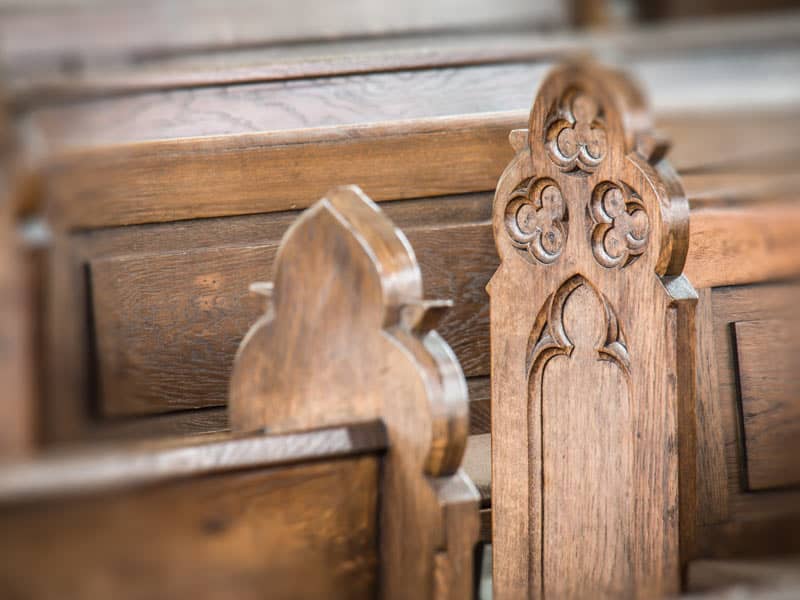When Grandma Naughton was pregnant with my father, she made a novena to St. Gabriel, the Archangel. So, naturally, my father was named.Franklin. And therein lies a tale.
My grandparents were Irish-Catholic Democrats. Grandfather Naughton was an immigrant and a union man. He had voted for Al Smith for president in 1928. Like the rest of Irish America, he'd been appalled and frightened at the venomous anti-Catholicism that Smith, the Catholic governor of New York, encountered outside immigrant-rich cities.
Smith lost in a landslide, but the loss was instructive, for it made clear that more than 80 years after the first great wave of Irish immigrants had settled on these shores, its children were still hated by many of their adopted countrymen.
Four years later, the man who had succeeded Smith as governor of New York succeeded him at the top of the Democratic presidential ticket. By that time, the Great Depression had swept through the coalfields, where there was no margin for economic error, even at the best of times. To the Irish families who worked the mines, then, Franklin Delano Roosevelt--though a Protestant--was their avenger and, God willing, their deliverer.
So, when my father was born on March 4, 1933, the day FDR was inaugurated to his first term, my Grandma Naughton took it as a sign from God. With apologies to St. Gabriel, she named her son Franklin. She tried to name him Franklin Delano, but her pastor insisted that the child have at least one saint's name, so she settled on Franklin James.
My grandmother named my father for a president rather than for an angel--a temporal being, rather than a celestial one. This would have seemed riskier to her than it does to us. The reason for naming a child after a saint is to give your offspring a heavenly patron. My grandmother took this a step further. Through her novenas, she struck a bargain with the prospective patron while the child was still in her womb. But in my father's case, she changed her mind--and changed it so completely that calling in St. James was something of an afterthought.
Now, one way to interpret my father's name is as a sign that my grandmother now invested greater faith in politics than in religion. As a former history major, I can tell you that her behavior did conform to a well-documented dynamic in American immigration. Many immigrants found it difficult to reconcile the faith and folkways of their homelands with the pragmatic materialism of the United States.
It might also suggest that after Al Smith's defeat, my grandmother was simultaneously staking a claim to full citizenship and offering homage to the prevailing Protestant culture to which the Irish sought entry.
But these explanations overlook two important facts, one historical and the other theological.
Because it was an occupied nation, Irish politics has always had a strong messianic streak. The comparison to the Jews of Jesus' time is inexact but instructive nonetheless. The nation aspired to political deliverance as the soul aspired to spiritual deliverance, and it was easy to mistake one for the other or to assume a relationship between the two. Politics, in this context, is not a rejection of religion, but an extension. (In the American contest, this is what the secular left fails to grasp about the religious right--and, for that matter, the religious left.) This is not to say that my grandmother thought that FDR was God, but rather that FDR, whether he knew it or not, was from God.
Their deeply pessimistic view of human nature reduces the Incarnation to a divine rescue mission on behalf of the elect. For them, Jesus is God's helicopter, waiting to lift his saints off the roof of some besieged earthly embassy and ferry them to safety. But when the Word took flesh, it accomplished something greater than that.
In becoming human, Jesus Christ sanctified time. He sanctified history. And, he reminded us of the sanctity of creation--in other words, of matter. He also demonstrated that the God who often seems so distant participates, continually, in creation. And, as in the stories of Sarah, Moses, David, Gideon, and the apostles, God uses the seemingly unpromising materials that are close at hand.
Which brings us back to my grandmother, who was right about FDR. The patrician Protestant president became the best friend miners and their families had ever had in the White House. It brings us also to the current political situation, in which the issues that most deeply divide us (abortion, gay rights, economic justice, and humanity's relationship to its environment) are religious and not political, and need to be argued as such.
And it brings us also to St. Teresa of Avila, who wrote:
Lord Christ,
You have no body on earth but ours,
No hands but ours,
No feet but ours.
Ours are the eyes through which your compassion
Must look out on the world.
Ours are the feet by which you may still
Go about doing good.
Ours are the hands with which
You bless people now.
Bless our minds and bodies,
That we may be a blessing to others.
She wasn't writing about politics, but she could have been.

